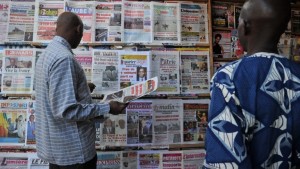 The first and last lesson that all new reporters must learn is that there is no compromising on accuracy.
The first and last lesson that all new reporters must learn is that there is no compromising on accuracy.Nothing undermines a reporter’s reputation more and that of a news oganisation than errors in copy, be they big or small. Fortunately, getting it right is not a mystical art or something only very experienced journalists can do.
In this guide we look at the practical steps you can take to get it right the first time.
Know your subject
Most stories require a bit of advance research, even if you’re a beat reporter and fairly familiar with the issues involved. But be very choosy about the sources of your information.
Wikipedia is fine for an overarching view but it can often be incorrect or slanted by the individual bias of contributors. Stick to original source material as much as possible. If you’re using secondary sources like news reports, look for articles published by reputable newspapers, magazines and reporters.
Many news organisations still have clippings libraries that contain articles not available on the Internet. In the age of Google, these are often sorely under-utilised and, in some instances, a potential gold mine of information that could give you the edge over other reporters working a story.
Talk to your colleagues. If you’re using articles written by other reporters in your newsroom as background and there are elements that aren’t clear or strike you as odd, ask questions. You’ll quickly get a feel for whether or not the articles were the product of a thorough reporting job.
No such thing as a stupid question
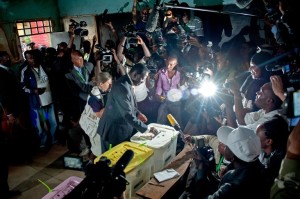 Just because something has been published don’t assume that it is right. We all get things wrong from time to time. Errors slip through news editors and sub-editors. Articles in library and online news archives that have been subject to corrections after publication may not include links or cross-references to those corrections.
Just because something has been published don’t assume that it is right. We all get things wrong from time to time. Errors slip through news editors and sub-editors. Articles in library and online news archives that have been subject to corrections after publication may not include links or cross-references to those corrections.The importance of proper research cannot be understated. Never go to an interview without preparing for it first. And during an interview, check key facts like dates, spellings and places with the interviewee. Mistakes – big and small – are easily perpetuated if you don’t take the trouble to check things with the source directly. There is no such thing as a stupid question. More often than not people will appreciate your diligence.
Use a recorder
Record the interviews you conduct. Unless you are dab hand at shorthand, you will get it wrong somewhere along the line. Or you may not be able to accurately recall the context in which something was said. If you record an interview, there is little room for error.
Transcribing interviews can however be a hugely time-consuming process and rather onerous when working to a tight deadline. During an interview, jot down the timecode of the recording at key moments or when the interview says something noteworthy. That way you can locate it quickly later.
Having a recording of an interview is also good insurance. If the interviewee later claims to have been misquoted you have evidence that they were quoted accurately.
Your notes are crucial
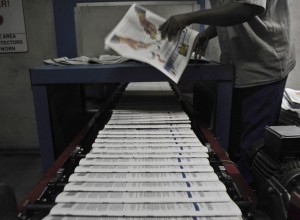 Always take notes. Recorders fail and batteries die. There are few things worse than doing a long interview and discovering afterwards that the interview didn’t record.
Always take notes. Recorders fail and batteries die. There are few things worse than doing a long interview and discovering afterwards that the interview didn’t record.Your notes are also a crucial guide to the interview. Mark key quotes in your notebook with an asterisk or underline them so you can find them more easily when you sit down to write the article.
Check all the details, no matter how inconsequential they may seem. Go over important aspects with the interviewee until you are certain you have it right.
It is very important to take the time to check the dates, times, ages, exact titles and names. Don’t make assumptions. Nothing annoys people more than having their names misspelt. If, for example, someone says his name is “John”, check it. It could be “Jon”. If the person’s name is Bongi, check if it is a short form and if she wishes to be known by her full name (it could be Sibongile). Do it by spelling it back to the person rather than letting them spell it to you. There is less room for error this way because you will not mishear them.
You can't write about something you don't understand
Check anything you don’t understand. You can’t write about something if you don’t understand what it’s about. Remember there are no stupid questions. If it’s a dauntingly complex issue or subject, for example, something to do with science or technology or economics, try and explain it back to the person you are interviewing. They won’t mind and will appreciate your attempts at clarity.
Always get the person’s cellphone number and ask them if you can phone them later with any queries. They will appreciate you wanting to get it right.
If you can tell you’re going to need more information on a story or more sources, ask the person you’re interviewing if there is anyone else they can suggest you talk to. One interview can lead to many more and help you gain a thorough understanding of the subject you are tackling.
The importance of independent sources
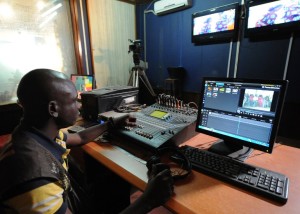 If you are breaking a story or are dealing with a contentious issue, then make sure you have at least two sources – preferably three – who are not connected to each other in any way. This is what is meant by “two independent sources”. They must be independent of each other.
If you are breaking a story or are dealing with a contentious issue, then make sure you have at least two sources – preferably three – who are not connected to each other in any way. This is what is meant by “two independent sources”. They must be independent of each other.Don’t be too quick to suggest that an interview can be off-the-record. Let the person you are interviewing say that something is “off-the-record”.
That said, you should use your judgment. If the person you are interviewing is not media savvy make them aware that what they are saying will be printed or broadcast. They need to be aware of the possible consequences of talking to you on-the-record.
If someone is being sketchy and vague about something seemingly important (politicians and bureaucrats, for instance, often try to avoid being pinned down), then stop them and state your understanding of the issue as a question. For instance, if you were interviewing an official in the Department of Health you could say: “Let me make sure I understand what you are saying. The department’s policy for national health insurance has changed to x,y,z…?”
Lastly, listen very carefully to the interviewee. Try to understand the person’s point of view and where they are coming from, no matter how at odds their views are with yours or how odious they may be. Your job is to represent all sides fairly and to treat all sides equally. Concentrate on what is being said. You don’t have to sympathise but you can empathise. This will go a long, long way to ensuring that your representation of a person, issue, event or debate is textured, and accurate.
Writing the story
Before you sit down to write, take a moment to consider whether the story you plan to write will be fair and accurate. Do you need to approach someone else for further comment to give the article balance? If there is something niggling you, deal with it, don’t ignore it. Your instinct is usually right.
During writing, pause to think if you have captured the essence of what each person told you. Does someone need a little bit more weight in the story, a little bit more explanation or perhaps a little bit less? Can their point of view be put more concisely and more clearly in indirect speech? Are you representing the essence of what they told you accurately when you put it in indirect speech? Is the phrasing ambiguous or difficult to understand? What is the essence of what they told you? Remember, no matter how pressed for time you are, your name is on the article and your reputation for getting it right is the most important asset you have.
Check the details against your notebook, your recording and source material: all the facts, names, dates, titles and positions and any figures of any kind. Don’t rely on recall.
Check, check and check again
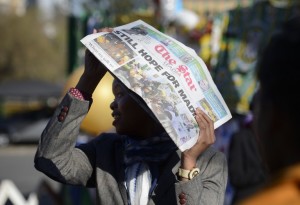 If there is anything you are unsure of, or if there are details you forgot to double-check during the interview, call the interviewee back immediately. Sometimes, it may be the name of a company or something that is in the public domain that you can check online but then go to the source: the actual website of the company. With any online checking, try go to the most authoritative sources – not Wikipedia – but places where you can access original source material.
If there is anything you are unsure of, or if there are details you forgot to double-check during the interview, call the interviewee back immediately. Sometimes, it may be the name of a company or something that is in the public domain that you can check online but then go to the source: the actual website of the company. With any online checking, try go to the most authoritative sources – not Wikipedia – but places where you can access original source material.Likewise if you need to check things that have been reported in the news, refer to credible news organisations. Always attribute your source material.
If you are unable to verify a specific fact, leave it out or write around it. If it is a fact or detail that is crucial to the article, tell the news editor that you’ve got a problem. Don’t keep silent.
Cleaning copy
No matter what deadline pressure you are under, take ten minutes and read carefully through your finished article. Do this at least twice. On the first reading look for spelling and grammar errors. Tighten and brighten the copy and check each and every little fact. It often helps to print out a copy of the article, underline or highlight key aspects like names, dates, times, places and quotations, and then check them against your notes and source material.
On the second reading, think about the bigger picture, the sense of the piece, whether it’s balanced and fair and ethical. You’ll probably spot a few remaining typos along the way. If you have the time, go through it again.
There is nothing more irritating to a news desk than messy copy littered with spelling mistakes. There are lots of online dictionaries available.
Fewer spelling errors and cleaner copy means the news desk and the sub-editors can concentrate on the big-picture stuff: the facts, the balance and angle of the story and the ethical and legal issues.
Your name, your credibility
If you’ve come up with a really snappy introduction, make sure it represents the story accurately. No matter how clever your use of language or how attention-grabbing the introduction is, it is not worth using if it departs in any way from the truth and essence of the story.
If you have any concerns at all about the possible legal implications or consequences of the article, consult someone who knows media law and defamation. There is usually someone like this around in a newsroom. If you are on your own, err on the side of caution. Once again, it is your name on the article. Your credibility is your most important asset.
Gill Moodie is a journalist of 20 years’ experience and the publisher and editor of the South African media website, Grubstreet.


Add new comment